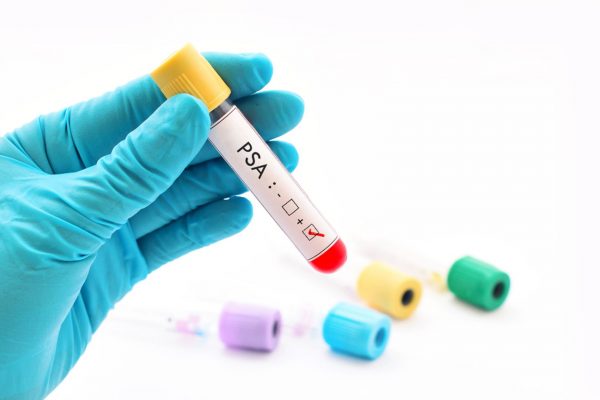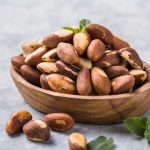Back in the 1990’s and early 2000’s, men diagnosed with low-risk prostate cancer thought it was a death sentence. So they often opted to undergo immediate surgery or radiation treatments, which can both result in serious, lifelong side effects.
These days, however, men are increasingly choosing not to undergo immediate treatment. Instead, they are opting for active surveillance – holding off on treatment until there are signs the cancer may be advancing.
This is a great choice because, over the years, we’ve learned that most men diagnosed with prostate cancer don’t die from it. As a matter of fact, they are more likely to succumb to cardiovascular disease, COPD or Alzheimer’s disease.
In other words, a large number of men die with prostate cancer but not because of it. And there are several ways you can further prolong your life, even with a prostate cancer diagnosis.
The Japanese Experience
A 2022 research paper suggests that lethal prostate cancer is almost entirely preventable based solely on the foods you eat. The author makes the case by addressing the low rates of prostate cancer in Japan when compared to the U.S.
Specifically, the Japanese diet is high in plant protein and low in animal protein. Most of their diet is filled with fresh, whole foods. And the little animal protein they do get is mostly comprised of fish. Add in a heavy consumption of green tea (catechins), and the Japanese diet is worlds away from the American diet.
Here in the U.S., we are much more likely to adopt a diet high in unhealthy fats, commercial meat products and soda; along with sugary, refined, processed and packaged foods. Not to mention the fact that a large number of adults seldom choose to make vegetables and fruits a mainstay of their diets.
This may explain why Japanese men who relocate to the U.S. have a rise in prostate cancer risk. Our Western-Style diet just isn’t conducive to a healthy prostate.
Still, you don’t have to adopt a foreign diet to gain the prostate-protective benefits of food. There are plenty of foods you probably like that can help prevent prostate cancer from getting the best of you.
One of my favorites is tomatoes. These red fruits are great cancer fighters! They are abundant in lycopene, a powerful antioxidant that can slash the risk of prostate cancer by about a third. The lycopene found in tomatoes is also associated with lower PSA levels.
And who doesn’t like tomato products? Tomato soups, salsas and marinara sauces. Tomato curry, stewed tomatoes and more! In fact, YouGov.com, an international online research group, shows that tomatoes are the fifth most popular vegetable among adults.
Oddly enough, the lycopene in canned tomatoes is much more absorbable than that in the fresh fruit. Go for an organic brand that has a low salt content, or supplement with 6.5 mg of lycopene daily.
Then you have your cruciferous vegetables. They include things like arugula, bok choy, broccoli (the ninth most popular vegetable!), Brussels sprouts, cabbage, cauliflower, collard greens, kale, mustard greens, radishes, rutabaga, turnips and watercress.
These veggies contain powerful phytonutrients called sulfuraphane and indoles that have anti-cancer properties. The higher your intake of cruciferous vegetables, the lower your risk of prostate cancer is.
I also mentioned green tea earlier. Drinking it regularly can slash the risk of advanced prostate cancer by around 50%. And you don’t have to be Japanese to enjoy several cups a day. Personally, I drink two to three cups of it each day.
I like to mix and match them. I might have matcha green tea in the morning, a jasmine green tea mid to late morning and then in the afternoon I’ll go with one that’s decaffeinated. (That way I won’t have the caffeine in my system at bedtime.)
These are only three things you can add to your daily routine to get some great protective benefits against aggressive prostate cancer. I also have one more tip.
The Prostate Stagnation Hypothesis
A long-running study out of Harvard T.H. Chan School of Public Health found that men who ejaculate more frequently are 22% less likely to develop prostate cancer than those who ejaculate less frequently.
It’s called the “prostate stagnation hypothesis.” Basically, the more crap that accumulates in the prostate, the greater your chances of developing prostate cancer. But the more often you flush it out with ejaculation, the fewer cancer-causing toxins will remain.
In other words, every time a man ejaculates, it cleans out the prostate gland and has a positive influence on his long-term prostate health. So if you have a regular partner in the bedroom, or able to pleasure your own self, take advantage of it!
In the meantime, active surveillance is a sensible alternative to taking drastic action that could leave you feeling like a eunuch. So before making any major decisions, go over all of the pros and cons with your doctor.
If you need a little help, I discovered a handy-dandy tool that pretty accurately pools the risk of various outcomes depending upon what type of action you take.
SOURCES:
Ye Y, Zheng Y, Miao Q, Ruan H, Zhang X. Causes of Death Among Prostate Cancer Patients Aged 40 Years and Older in the United States. Front Oncol. 2022 Jul 1;12:914875.
McCarty MM. The Japanese experience suggests that lethal prostate cancer is almost wholly preventable with a quasi-vegan diet, soy products, and green tea. Medical Hypotheses. 2022;164:220839.
Fraser ML, Lee AH, Binns CW. Lycopene and prostate cancer: emerging evidence. Expert Rev Anticancer Ther. 2005 Oct;5(5):847-54.
Mirahmadi M, Azimi-Hashemi S, Saburi E, Kamali H, Pishbin M, Hadizadeh F. Potential inhibitory effect of lycopene on prostate cancer. Biomed Pharmacother. 2020 Sep;129:110459.
Long J, Liu Z, Liang S, Chen B. Cruciferous Vegetable Intake and Risk of Prostate Cancer: A Systematic Review and Meta-Analysis. Urol Int. 2023;107(7):723-733.
Kurahashi N, Sasazuki S, Iwasaki M, Inoue M, Tsugane S; JPHC Study Group. Green tea consumption and prostate cancer risk in Japanese men: a prospective study. Am J Epidemiol. 2008 Jan 1;167(1):71-7.
Rider JR, Wilson KM, Sinnott JA, Kelly RS, Mucci LA, Giovannucci EL. Ejaculation Frequency and Risk of Prostate Cancer: Updated Results with an Additional Decade of Follow-up. Eur Urol. 2016;70(6):974-982.




